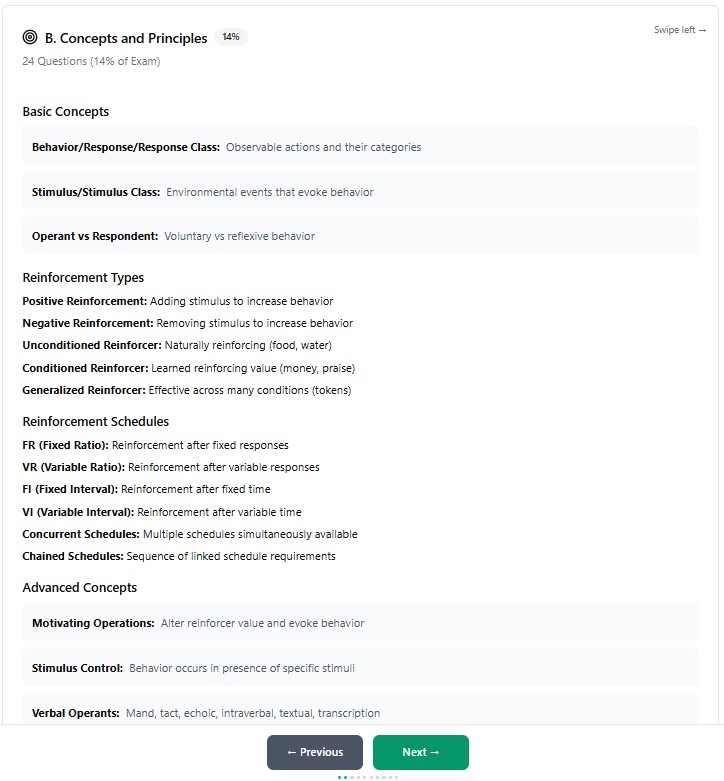Everything you need to ace the Board Certified Behavior Analyst exam — comprehensive practice covering all domains of applied behavior analysis.
Code: BCBA
Vendor: BACB
Duration: 240 minutes
9 Core Domains
185 Questions
400/500 Passing Score
Difficulty: Advanced
Salary: $65K - $95K
Demand: High
Experience the quality of our 1,418+ practice questions
Variable ratio (VR) schedules produce the highest resistance to extinction because the unpredictability of reinforcement keeps the behavior strong. Classic examples include slot machines and sales commissions, where the individual never knows exactly when the next reinforcement will occur.
The primary purpose of an FBA is to identify the function or purpose that a problem behavior serves for the individual (e.g., attention, escape, access to tangibles, or automatic reinforcement). Understanding the function allows for development of effective, function-based interventions.
DRO (Differential Reinforcement of Other behavior) involves delivering reinforcement when the problem behavior does not occur for a specified period of time. Any behavior other than the target problem behavior can occur and still result in reinforcement, making it the broadest differential reinforcement approach.
When legal requirements conflict with professional recommendations, the behavior analyst must inform all relevant parties of the conflict and work toward resolution. This aligns with the BACB Ethics Code requirement to resolve conflicts between ethics and legal requirements through open communication and collaborative problem-solving.
Duration is the most appropriate measurement for tantrum behavior because it captures how long the behavior occurs, which is typically more clinically relevant than simply counting the number of tantrums. Duration measurement is essential when the length of time the behavior occurs is the primary concern.
Comprehensive coverage with practice questions and explanations
Comprehensive coverage with practice questions and explanations
Comprehensive coverage with practice questions and explanations
Comprehensive coverage with practice questions and explanations
Comprehensive coverage with practice questions and explanations
Comprehensive coverage with practice questions and explanations
Comprehensive coverage with practice questions and explanations
Comprehensive coverage with practice questions and explanations
Comprehensive coverage with practice questions and explanations
Track your progress across all 9 domains with detailed performance insights.
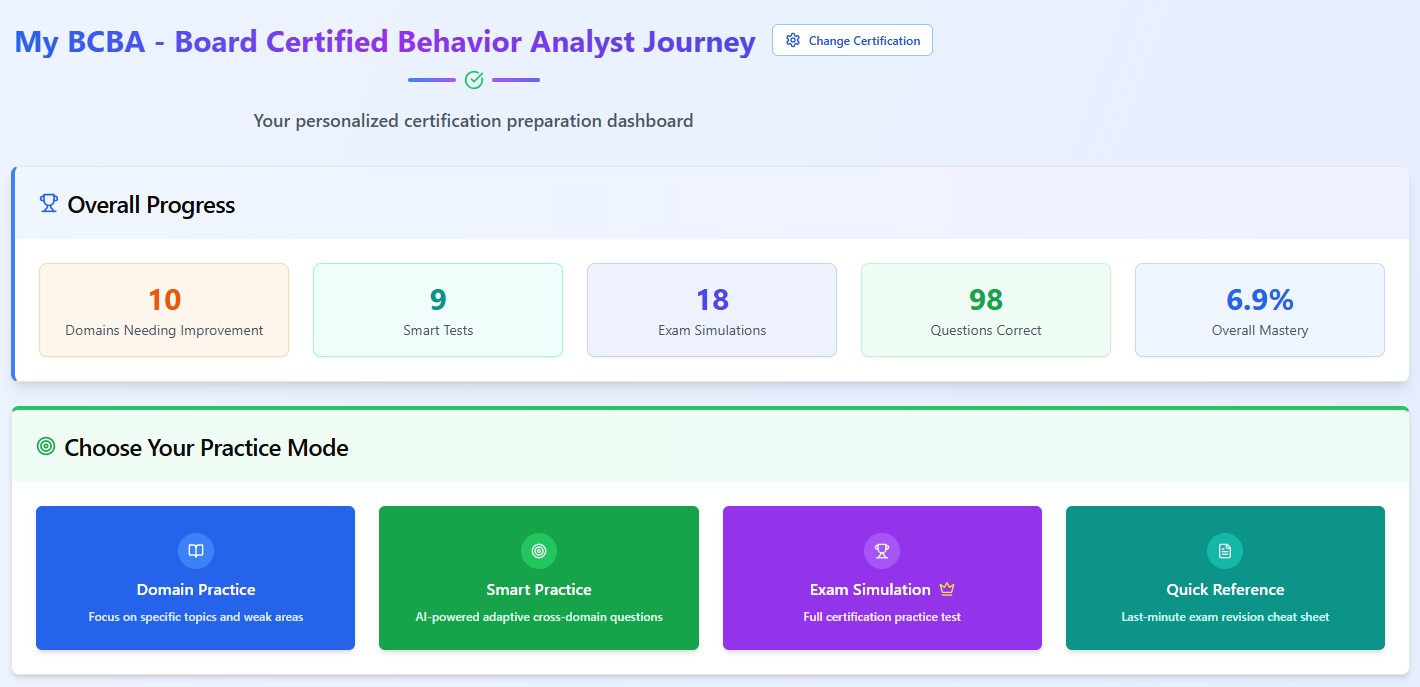
AI-powered question selection focuses on your weak areas for maximum efficiency.
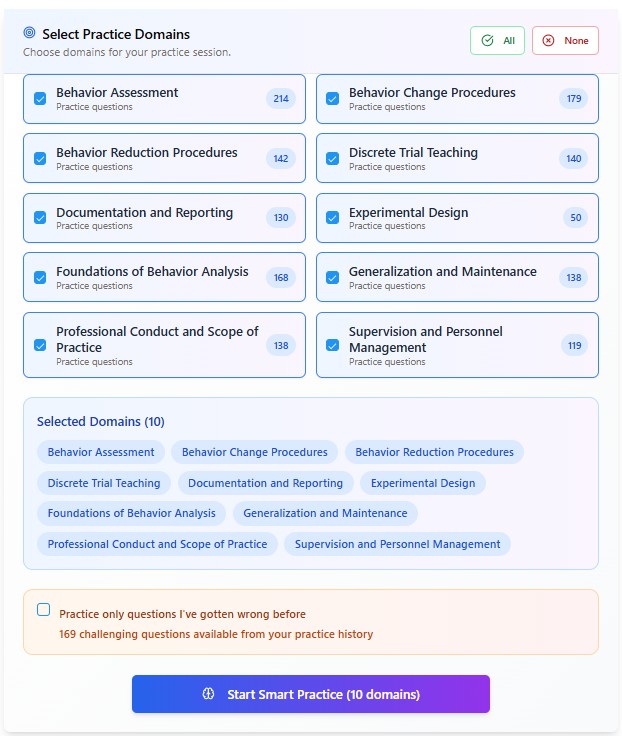
Master each domain with targeted practice sessions and explanations.

Full-length practice exams with 185 questions and timer.
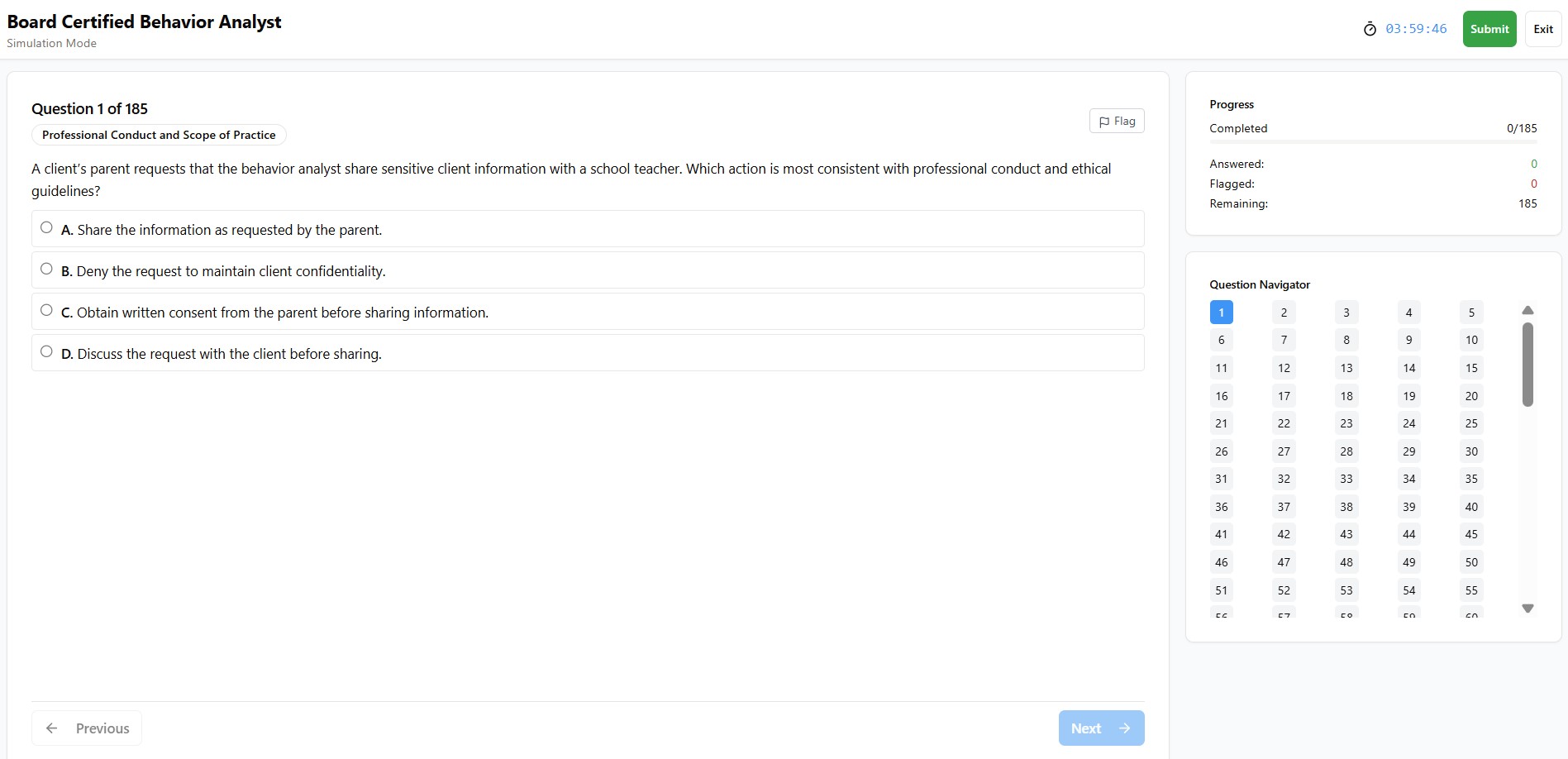
Interactive flashcards for quick review and concept reinforcement.
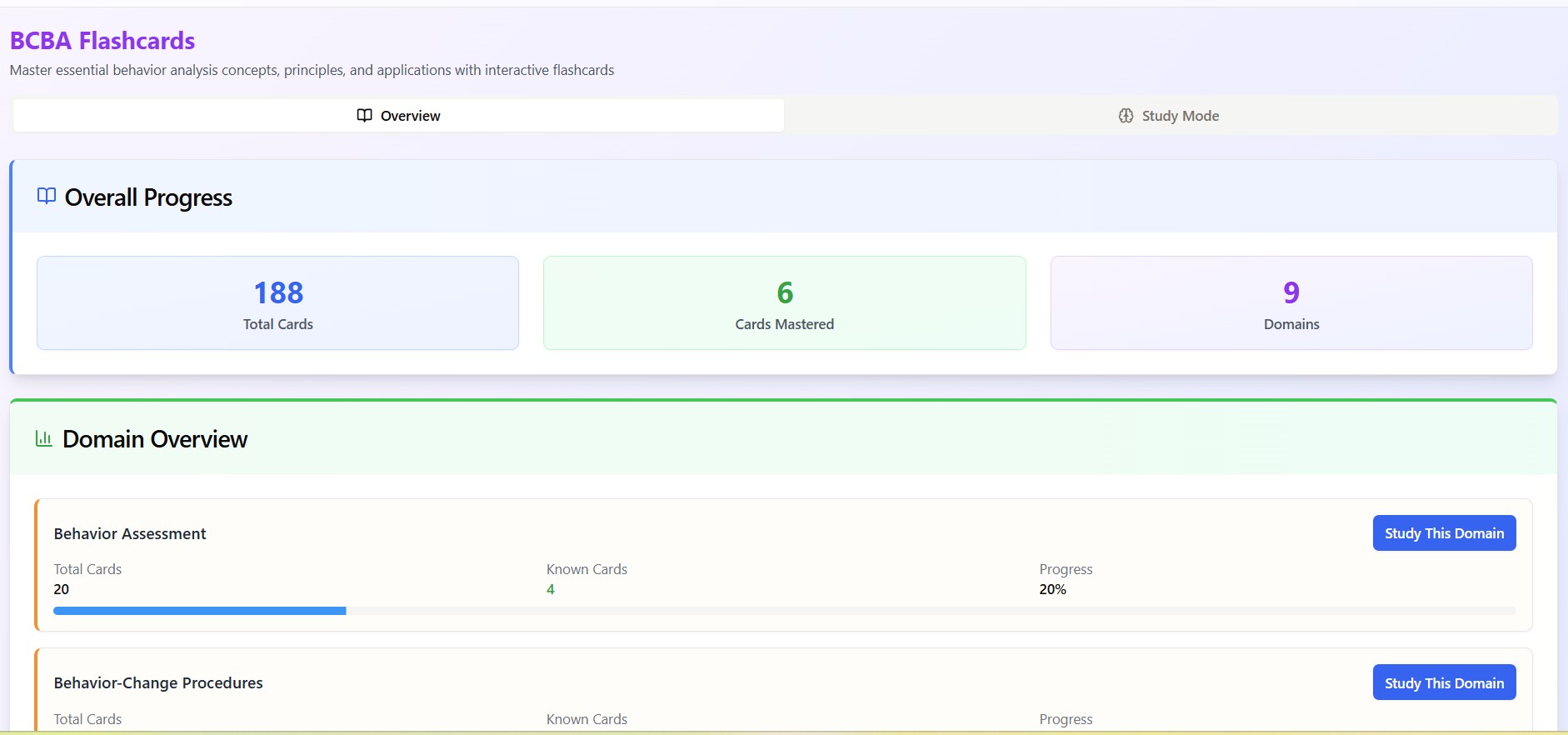
Swipeable study guides covering all BCBA domains.
